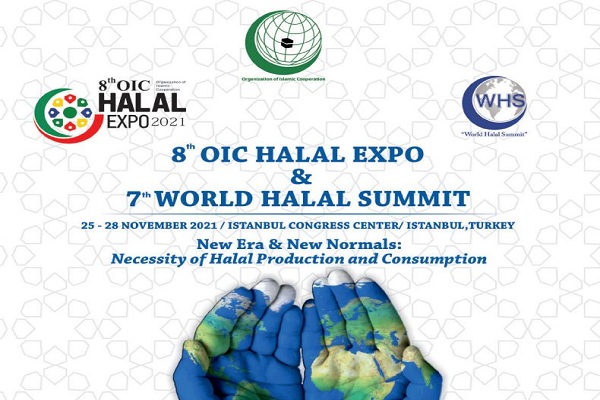By: Pinar Tremblay for Al-Monitor Turkey Pulse
 The Muslim world just concluded one of its holiest of celebrations, called Eid al-Fitr, marking the end of the holy month of Ramadan. In Turkey, for the last couple of years, a battle of “halal” (permitted in Islamic law) words have intensified. If you dare to say “Candy Feast” (Seker Bayrami) instead of Ramazan Bayrami in your greetings you may be scolded by “conservatives” and political Islamists.
The Muslim world just concluded one of its holiest of celebrations, called Eid al-Fitr, marking the end of the holy month of Ramadan. In Turkey, for the last couple of years, a battle of “halal” (permitted in Islamic law) words have intensified. If you dare to say “Candy Feast” (Seker Bayrami) instead of Ramazan Bayrami in your greetings you may be scolded by “conservatives” and political Islamists.
Although it has long been a tradition to refer to it as candy or sweets holiday in Turkish because it was seen as sunnah (the practices of the Prophet Muhammad, peace be upon him, that he taught and followed) to indulge in and share sweets with your family and friends. The Anglo-Saxon world has mostly adopted the Arabic saying of Eid Mobarek, or Eid Said (Blessed or Happy Eid), while Turks could not yet decide what is the most appropriate way to wish happy holidays. Twitter preachers are not shy to tell you “how to greet for the Holy Day” and even when it is appropriate to send your greetings. Those “secular” tweeps who insist on referring to it as “Candy Holiday” are considered unworthy of the celebration because they probably did not even observe the fast. Even a few simple words of greeting have become a political fault line. Hence, one must choose one’s words diligently in Turkey to avoid backlash.
The latest shenanigan took place on the first day of Eid, Aug. 8, when Deputy Prime Minister Bulent Arinc refused to listen to a folk song live. He reasoned that the song contained the word “raki” (an aniseed-based alcoholic beverage, traditionally brewed all around the Balkans and Anatolia for centuries). The song is said to be written in the 14th century, which predates the conquest of Istanbul. Oddly enough, Arinc was recorded on camera while enjoying the same song during a trip to Macedonia in October 2011.
Having suffered a recent round of attacks on alcohol consumption through numerous ambiguous laws and unwarranted “drinking beer in mosque” accusations, an irritated group of “seculars” again voiced their opposition in the rare, if not the only, forum that is immune to Turkish governmental censorship, Twitter. Under the hashtag #direnraki (resist raki) hundreds of tweets poured in within hours of Arinc’s refusal. When you type the hashtag under “search” command of Twitter you will see tens of photos posted since Aug. 8 with raki glasses from all over Turkey.
Several tweeps shared meyhane (pub, tavern) songs and Ottoman and contemporary poems to guard their freedom to make simple life choices. Meyhane culture has been under attack in Turkey and this is a grievance for millions of Turks. It is not about exclusively the consumption of alcohol, because Turkey ranks second to lowest amongst 53 countries in alcohol consumption according to the World Health Organization’s “European Status Report on Alcohol and Health 2010.”
It is mostly about getting together with friends in a relaxed ambiance. On the same day of Arinc’s raki song incident, Erdogan was quoted in his Eid speech referring to the opposition in general, Gezi protesters specifically, saying,
“What is missing from your life? In the last decade, the AK (Justice and Development) Party has introduced the most possible rights and freedoms from A to Z in the republic’s history.” But he added that if people do not obey the laws they will be punished.
Punishment comes in many forms in Turkey. While Twitter remains a vibrant forum for uncensored expression of views, it is by no means “free.” Journalists have been fired via Twitter in Turkey because of their tweets. With the #direnraki hashtag this time, it was a twitter lynching against a popular fiction writer, Ahmet Umit who tweeted, “If you take away rak? from life, what remains? Neither the joy of conversation, nor friendship, nor the evening, nor a full moon, nor love … #direnrak? (#resistrak?).” Many “Islamists” expressed their resentment and some sent rather harsh comments to the author, so much so that a boycott was initiated under the hashtag #AhmetÜmitKitaplar?Alm?yoruz (We are not to buy Ahmet Umit’s books). Many of those joining the boycott said they were against the author because he praised and defended “raki.”
How do you defend a beverage? It is not about raki or wine or even about alcohol. It is about cultural resistance. Indeed, oddly enough those who are supporting #direnraki hashtag want to preserve a culture, while Islamists tell younger generations that raki is alien to these lands. The folk song sadly stands against their stories and confirms it is an “Ottoman” legacy. It is the resilience of Mediterranean tavern culture.
Despite all hard work, the tavern culture is proving to be a challenge for AK Party elites. The substitute comes as hip restaurants with Arabic names. This Ramadan, upper-class Istanbulians frequented new hip and happening restaurants, such as Huqqa and Al Fakheer that made it into the society columns. Huqqa, open 24 hours, served not only iftar (breaking of the fast during sunset) but also sahur (beginning of the fast before sunrise) with halal-certified meats, nargilah [the Turkish hookah, or water pipe], and its own masjid (prayer room). (Note that some other entertainment establishments in Istanbul also have masjid and bathrooms for ablution). Maybe the most intriguing part of this establishment is its drinks. Do not expect to find wine or raki on the menu, as the restaurant prides itself on being alcohol-free.
However, you can order a mojito, a virgin mojito needless to say. Huqqa is only one of the hip restaurants observant Muslims frequent which serve “virgin” drinks along with nargilah. Al Fakheer, on the other hand, serves nargilah flavored with vodka, whisky, amaretto and champagne. You can see the battle of words escalate; although “raki” is not “halal”, inserting the word “virgin” could make mojitos popular for those who can afford them. Following this trend, it would be wise to advise those who want to be included in AK Party circles that they should tweet with alcohol-free words. It may also be smart to invest in halal (alcohol free) beer and wine, and who knows — if this trend continues maybe soon virgin raki would be on the shelves?
Either way, we can only be sure of more surprises from the Turkish “opposition.” The AK Party vigilantly banned any political slogans during soccer games, so the fans are simply chanting these two words in protest: “Siyasi slogan” [political slogan]. How far these gradual encroachments on rights and increasingly repressive measures can be taken is a worrisome question.
Pinar Tremblay is a doctoral candidate at University of California, Los Angeles, in political science and an adjunct faculty member at California State Polytechnic University, Pomona. She has previously been published in the Hurriyet Daily News and Today’s Zaman. Follow her on Twitter: @pinartremblay.



